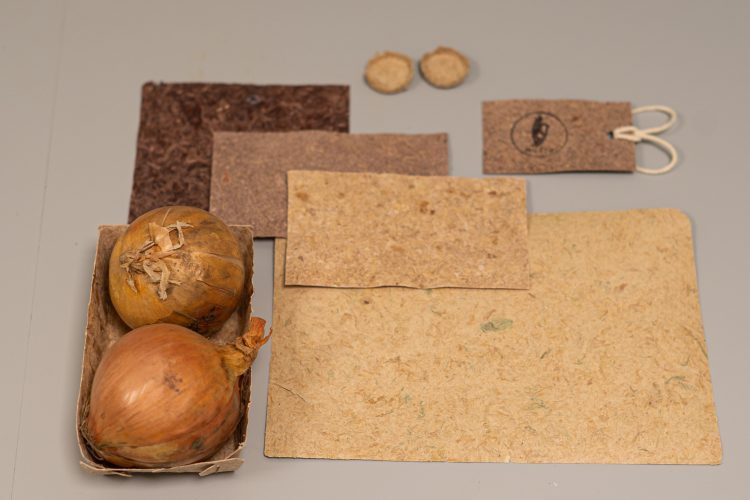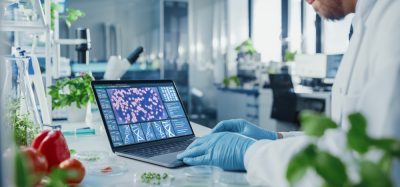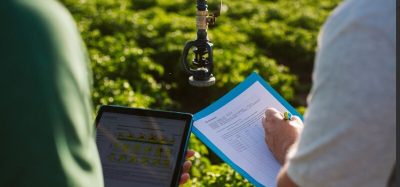Could onion skins be the future of sustainable packaging?
Posted: 9 October 2024 | Ben Cornwell | No comments yet
A Scottish startup is developing sustainable packaging made from onion skins, offering a plastic alternative and reducing waste in the process.


The future of sustainable packaging? Image credit: HUID
Oban-based company HUID (the Dutch word for skin), founded by textiles specialist Renuka Ramanujam, is developing innovative eco-friendly packaging made from onion skins, potentially offering a sustainable alternative to plastic.
With the global focus on reducing household waste, HUID’s compostable materials aim to replace traditional plastic packaging, which is derived from fossil fuels and contributes significantly to environmental pollution.
HUID’s breakthrough packaging products are being supported by the National Manufacturing Institute Scotland (NMIS) and the Advanced Materials Research Laboratory (AMRL) at the University of Strathclyde, which are conducting tests to assess the performance, functionality, and environmental impact of these materials.
The startup has already produced two prototypes: Pyber, a material resembling cardboard, and Cellofil, a flexible film. Mechanical tests and lifecycle assessments conducted by AMRL and NMIS confirm that both products meet performance standards, with onion skins providing comparable mechanical strength to conventional plastics.
Crucially, onion skins contain natural anti-microbial properties, which could help prolong the shelf life of perishable foods when used as packaging. The production process involves extracting cellulose from onion skins and blending it into a biopolymer, creating a material that mimics the durability of plastic while being compostable.
HUID is preparing to launch its first product, Pyber, by mid-2024, following the appointment of a chief scientific officer. To support its next phase of development, the company secured £150,000 from Innovate UK and £20,000 from The Greenhouse, a climate tech accelerator run by The Grantham Institute and Imperial College London.
Nature’s own form of packaging
The potential environmental impact of HUID’s innovation is significant. In the UK alone, households discard around 90 billion pieces of plastic packaging every year, while up to 400kg of onion skins are generated weekly as food waste. Most of these skins are currently repurposed as cattle feed, but HUID’s technology could transform this waste into a valuable resource.
Renuka Ramanujam, CEO of HUID explained: “Onion skins are nature’s own form of packaging, protecting the onion below from harm and are a plentiful waste source. Yet, after speaking to various scientists, I realised that no one was using them as a material and spotted a gap in the market for a new variety of eco-friendly packaging.
“Working with NMIS and the AMRL has been instrumental in refining our products and gaining the validation we need to show buyers and consumers that the compostable packaging meets the same standards they might expect from single-use plastic or cardboard.”
Aineias Karkasinas, Sustainability Engineer at NMIS, said the manufacturing centre champions sustainable solutions and supports small and medium-sized businesses through access to expertise and equipment they may not have. Karkasinas added that HUID’s product is “a great response” to the current market need for sustainable packaging.
As the demand for eco-friendly alternatives grows, HUID’s onion skin packaging could mark a significant step towards a more circular economy and a future less reliant on plastic.
Related topics
Packaging & Labelling, Product Development, Research & development, Sustainability, Technology & Innovation









